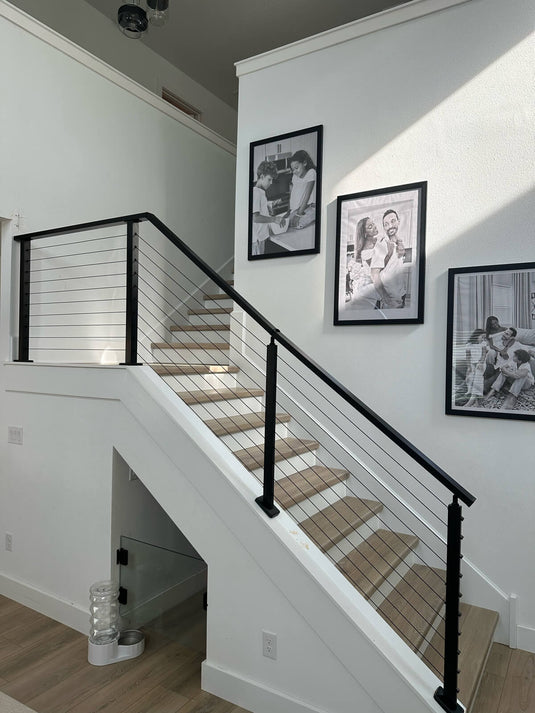TABLE OF CONTENTS
A Complete Guide to Prefab Stairs
Prefab stairs, or prefabricated stairs, offer a unique blend of functionality, style, and convenience that traditional stair building methods often cannot match. This comprehensive guide explores the essence of prefab stairs with an emphasis on their various features, material options, types, and costs.

What Are Prefab Stairs?
Prefab stairs are manufactured off-site in a controlled environment, ensuring precise measurements and consistent quality. Once constructed, they are delivered to the project site ready for installation. This method contrasts sharply with traditional stair construction, where everything from cutting to assembly occurs on-site, often leading to extended construction times and variable quality.
Features of Prefab Stairs
Prefab stairs boast a range of features that cater to efficiency, precision, and safety, making them an excellent choice for diverse construction needs. The most notable advantage is their quick installation process, typically taking only a few hours to complete, which significantly reduces the time and labor costs compared to traditional stair construction. This feature is particularly beneficial in settings where minimizing downtime is crucial, such as in businesses or occupied homes.
Precision in prefab stairs is unmatched because each component is engineered and produced in a controlled factory setting. This method ensures exact measurements and uniformity that on-site construction methods can seldom guarantee. For instance, step height consistency is maintained across all units, which is essential for safety and comfort.
The safety features of prefab stairs are comprehensive. They are designed with integrated railings that meet or exceed building codes and are rigorously tested for load-bearing capacity and durability. The uniformity of step height and depth contributes to a reduced risk of trips and falls, making these stairs ideal for environments frequented by children or the elderly.
Material Options in Prefab Stairs
This section focuses on wood, metal, concrete, etc., common materials used in prefab stairs.
Wood
Wooden prefab stairs are a testament to classic aesthetics combined with modern engineering. Available in a variety of woods like oak, maple, and cherry, these stairs can be tailored to the specific tone and ambiance of any room. They typically range in width from 36 to 48 inches, accommodating most standard building codes. Pricing varies, starting at around $2,000 for basic models, and can go up significantly with customization options such as exotic woods or intricate carvings.
Metal
Metal prefab stairs offer a robust solution with a lean design profile. Steel and aluminum are favored for their strength-to-weight ratios, facilitating designs that can span large distances without the need for extensive support structures. These stairs fit well in industrial settings or modern homes that embrace a minimalist aesthetic. Cost-wise, metal prefab stairs generally start around $1,500 for simpler designs, with more elaborate configurations costing upwards of $4,000.
Concrete
Concrete prefab stairs are especially valued for their longevity and the ability to withstand harsh conditions, making them ideal for outdoor use. These stairs are available in various finishes, such as polished, brushed, or textured, allowing for aesthetic flexibility. Prices for concrete prefab stairs can range from $3,000 for basic installations to over $7,000 for customized designs featuring ornamental treatments.
Glass and Stainless Steel Combination
This material combination brings a futuristic edge to any space, promoting light and openness. Glass panels used in these stairs are typically tempered or laminated for safety, paired with stainless steel for structure and durability. The visual appeal of this combination makes it a favorite in high-end commercial spaces or contemporary residences. Depending on the complexity and size, these stairs can cost anywhere from $5,000 to over $10,000.
Composite Materials
Composites such as fiberglass and reinforced plastics represent the cutting edge in prefab stair materials, offering resistance to corrosion, pests, and weathering, which makes them suitable for both indoor and outdoor applications. These materials are also notably lighter than traditional stair materials, which simplifies transportation and installation. Composite prefab stairs typically cost between $2,000 and $5,000, making them an affordable option for those seeking durability without the weight of metal or concrete.
Types of Prefab Stairs
Prefab stairs come in a variety of designs to meet different structural and aesthetic needs:

Straight Flight Stairs
Straight flight stairs are the quintessential model of simplicity and functionality. Typically moving in a linear direction from one floor to the next, they can also incorporate intermediate resting platforms in designs where the stairs are particularly long or cover significant vertical distances. This adaptation maintains the aesthetic simplicity while enhancing safety and comfort, ensuring that the stairs meet both functional needs and regulatory standards. Their straightforward construction and installation also shorten lead times and reduce labor costs, with costs often ranging between $1,000 to $3,000 depending on materials and dimensions. Compatible with various building styles, from modern to traditional, straight flight stairs offer a cost-effective and versatile solution for vertical circulation.
Quarter-Turn and Half-Turn Stairs
Quarter-turn and half-turn stairs are designed to optimize space in constructions where extending a straight staircase would be impractical due to length or obstructions. A quarter-turn stair makes a 90-degree turn, usually via a landing, while a half-turn includes a 180-degree switchback, often supported by a central landing. These designs are particularly useful in residential homes where space is a premium, but accessibility remains a priority. The prices for these stairs generally start around $2,000, with increases based on customization and materials.
Spiral Stairs
Spiral stairs are an elegant solution for tight spaces, gracefully winding around a central column. They are often chosen for their minimal spatial footprint and the unique aesthetic they can add to a space. Spiral stairs are commonly installed in corners of rooms, next to walls, or even outdoors, leading to decks or lofts. Due to their intricate design and the engineering required to ensure safety, costs can start at around $3,000 and can climb higher with premium materials and finishes.
Curved Stairs
Curved stairs are often seen as a statement piece, featuring continuous, flowing lines that suggest movement and grace. They are crafted with great skill to achieve a seamless arc, making them a popular choice for luxury homes, galleries, and corporate environments. The complexity of their design and the craftsmanship required typically place these stairs in the higher price bracket, starting at $5,000 and increasing significantly with bespoke designs and luxurious materials.
Cantilevered Stairs
Cantilevered stairs represent the pinnacle of modern stair design, appearing to float as they are mounted only at one end. The engineering behind these stairs is advanced, relying on robust materials and precise calculations to ensure they are both safe and stable. This design is favored in minimalist or contemporary interiors where visual impact is key. Prices for cantilevered stairs start at around $4,000, reflecting the sophistication of their construction.
L-Shaped Stairs
L-shaped stairs combine the straightforward approach of straight flights with an added turn, usually at a landing partway up the run, creating an L-shape. This design is advantageous for breaking up long flights of stairs, which can reduce the risk of falling and increase comfort by providing a brief rest spot. L-shaped stairs can be more expensive than straight models due to the additional complexity of the turn and the landing, with prices generally starting around $2,500.
How Much Do Prefab Stairs Cost?
The cost of prefab stairs can vary widely, typically ranging from $1,000 to $5,000 for basic models and escalating for custom designs and high-end materials. Factors influencing the price include the complexity of the stair design, the materials used, and the inclusion of additional features like custom railings.
How Much Does Prefab Stair Installation Cost?
Installing prefab stairs generally costs between $500 and $1,500, depending on the complexity of the installation and local labor rates. Professional installation is recommended to ensure safety and compliance with local building codes.
Final Words

Prefab stairs offer a compelling combination of beauty, efficiency, and versatility. With the myriad options available in terms of materials, designs, and types, there is a prefab stair solution to meet nearly any requirement. Choosing the right type and material, homeowners and builders can enhance the functionality and aesthetic appeal of their spaces while ensuring a swift and successful installation.




